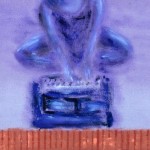The Facts about Facilitated Communication
 Facts About Facilitated Communication
Facts About Facilitated Communication
by Douglas Biklen
from http://www.autism-resources.com/papers/facts_about_FC Read the rest of this entry »
 Facts About Facilitated Communication
Facts About Facilitated Communication
by Douglas Biklen
from http://www.autism-resources.com/papers/facts_about_FC Read the rest of this entry »
 ‘Autism’ is one word but underlying autistic development and behaviour can be a ‘fruit salad’ of conditions. One of those is commonly Agnosias. Gnosia means ‘to know’. Agnosias are where the brain struggles to put meaning to incoming sensory information. Common agnosias in those with autism include Read the rest of this entry »
‘Autism’ is one word but underlying autistic development and behaviour can be a ‘fruit salad’ of conditions. One of those is commonly Agnosias. Gnosia means ‘to know’. Agnosias are where the brain struggles to put meaning to incoming sensory information. Common agnosias in those with autism include Read the rest of this entry »
 ‘Autism’ is one word but underlying autistic development and behaviour can be a ‘fruit salad’ of conditions. These conditions will often result in a range of voluntary and involuntary behaviors but how can you tell them apart and what are the low cost/no cost strategies for each? Read the rest of this entry »
‘Autism’ is one word but underlying autistic development and behaviour can be a ‘fruit salad’ of conditions. These conditions will often result in a range of voluntary and involuntary behaviors but how can you tell them apart and what are the low cost/no cost strategies for each? Read the rest of this entry »
 As an autism consultant since 1996, I have worked with attachment disordered kids with autism and those who are not. We are often daunted by the idea of attachment disorders in those with autism. It’s a taboo topic and conjures up images of archaic psychotherapy and Refrigerator Mother theory. But attachment disorders can also occur in people who have never experienced abuse, neglect or inconsistency of carers. Read the rest of this entry »
As an autism consultant since 1996, I have worked with attachment disordered kids with autism and those who are not. We are often daunted by the idea of attachment disorders in those with autism. It’s a taboo topic and conjures up images of archaic psychotherapy and Refrigerator Mother theory. But attachment disorders can also occur in people who have never experienced abuse, neglect or inconsistency of carers. Read the rest of this entry »
 Dissociation is the ability to cut off from what is happening around you or to you. In its simplest form it is daydreaming. It is a skill all children have and which children with autism tend to overdevelop in managing a world they find overwhelming for a whole range of reasons. Read the rest of this entry »
Dissociation is the ability to cut off from what is happening around you or to you. In its simplest form it is daydreaming. It is a skill all children have and which children with autism tend to overdevelop in managing a world they find overwhelming for a whole range of reasons. Read the rest of this entry »
 As an autism consultant since 1996, and a person diagnosed with autism at the age of two, I am very aware of the wide range of issues that can come together as a ‘toileting drama’ for someone with autism. Read the rest of this entry »
As an autism consultant since 1996, and a person diagnosed with autism at the age of two, I am very aware of the wide range of issues that can come together as a ‘toileting drama’ for someone with autism. Read the rest of this entry »
 Today non-verbal children and adults with autism are being introduced to iPads. But it was not always so. In fact first attempts to help people with autism communicate via pointing using letterboards, using typewriters and the early hand held communication devices were slammed by most autism experts who claimed everything from these being a threat to the person ever developing verbal speech to insisting entire schools and residential settings had the right to banish the use of communication devices by people with autism. Read the rest of this entry »
Today non-verbal children and adults with autism are being introduced to iPads. But it was not always so. In fact first attempts to help people with autism communicate via pointing using letterboards, using typewriters and the early hand held communication devices were slammed by most autism experts who claimed everything from these being a threat to the person ever developing verbal speech to insisting entire schools and residential settings had the right to banish the use of communication devices by people with autism. Read the rest of this entry »
 Here’s an awesome article which is NOT written by me but is by an anonymous author. I would have written pretty much what they’ve already written but they’ve done it so well I wouldn’t need to do my own version. It is filled with what any scapegoat of a mother with Narcissistic Personality Disorder will relate to. Read it. Read the rest of this entry »
Here’s an awesome article which is NOT written by me but is by an anonymous author. I would have written pretty much what they’ve already written but they’ve done it so well I wouldn’t need to do my own version. It is filled with what any scapegoat of a mother with Narcissistic Personality Disorder will relate to. Read it. Read the rest of this entry »
 I have childhood photos indicating Rickets from as young as 5 months old. Ricket’s shows itself in the forehead, bulges at the wrists, banana shaped bowed arms and legs and distended belly. But this severe vitamin D deficiency has more extensive impact than just bone development. It impacts the entire immune system, later teeth development, the muscles, the spleen, the liver, the gut, and the nervous system – yes, the brain. Read the rest of this entry »
I have childhood photos indicating Rickets from as young as 5 months old. Ricket’s shows itself in the forehead, bulges at the wrists, banana shaped bowed arms and legs and distended belly. But this severe vitamin D deficiency has more extensive impact than just bone development. It impacts the entire immune system, later teeth development, the muscles, the spleen, the liver, the gut, and the nervous system – yes, the brain. Read the rest of this entry »